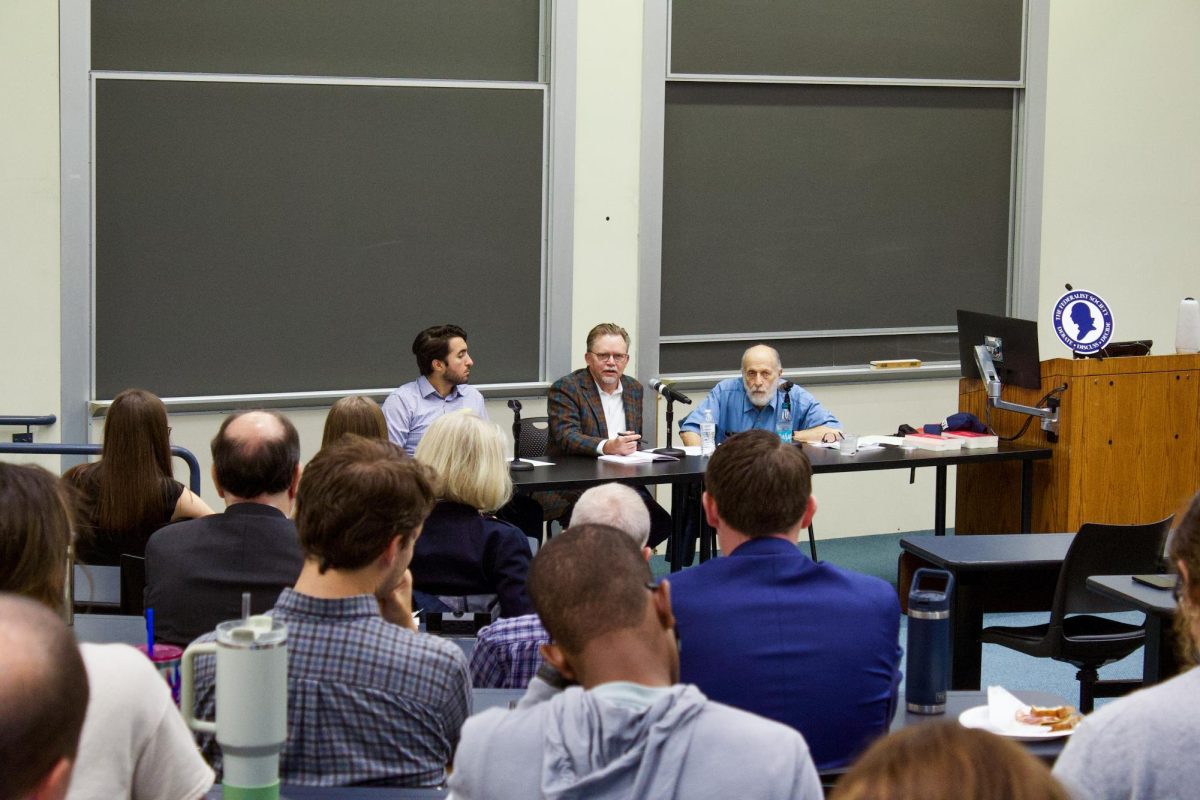According to CEO Darren Woods, ExxonMobil is a leader in the oil and gas industry, bringing innovative solutions to the field that other companies cannot.
“Anyone that’s out there that needs to work with companies in our industry sees us as the preferred partner in spreading innovative solutions, using our technology to provide solutions that others can’t,” Woods said.
Members of Boston College’s Chief Executives (CEO) Club gathered on Wednesday afternoon at the Boston Harbor Hotel to hear about Woods’ experiences as CEO of the world’s largest publicly traded oil and gas company.
Some members of the BC community did not support the CEO Club’s choice to have Woods speak. Climate Justice at Boston College (CJBC) condemned the club for hosting Woods in an Instagram post on Wednesday morning.
“[ExxonMobil] is famously controversial for publicly denying climate change and casting doubt on climate science—despite the fact that its own scientists accurately predicted climate change as early as 1977,” the post reads.
According to CJBC’s post, ExxonMobil represents the powerful oil and gas corporations that profit off fossil fuels, and it is therefore not aligned with “any organization that claims to support climate action.”
“We find it extremely hypocritical for Boston College to engage in public-facing climate action while simultaneously making money off an exclusive club that endorses ExxonMobil,” the post reads.
Woods spent most of his talk discussing sustainability within the oil and gas industry and addressing alternative methods of energy production, such as wind and solar energy.
“They’re a necessary part of the solution, but they’re not sufficient in [themselves],” he said about alternative energy. “There’s got to be a broader solution set.”
Woods said although more sustainable energy sources are capable of incremental change, none of them are realistically capable of being the primary global energy provider. Most sustainable energy sources are also very expensive and therefore unfit to satisfy the energy needs of low-income communities, Woods said.
“Extrapolating back to the entire world’s energy system, and at the same time comprehending the billions of people who are living in poverty, whose needs are going to have to be addressed on an affordable basis,” he said.
Woods said companies within the oil and gas industry need to proceed with caution when selecting to support sustainable sources of energy.
“We’re going to need a solid, consistent policy that is thoughtful, that helps the transition,” he said. “Big discontinuities are going to disrupt society and we’re going to set ourselves back.”
Despite his concern surrounding currently available climate-friendly alternatives, Woods expressed a sense of urgency in addressing the negative effects of oil and gas production globally.
“At this stage, given the challenges associated with transforming the entire global energy system, we need as many solutions out there as possible,” he said.
Woods addressed public criticism that ExxonMobil has not become involved in solar power generation, stating that solar power is not within its realm as a fuel producer. He clarified that oil and gas companies do not necessarily produce power, but rather the fuel that allows other companies to produce usable power.
“My view is that we don’t read a lot into that space, other than a checkbook,” he said. “And frankly, I don’t think our investors need us to write that check for them.”
Woods went on to argue that ExxonMobil is an industry leader in helping to fight the climate crisis.
“We feel like we have traditionally been a leader in the industry,” he said. “And we challenge ourselves to demonstrate what leadership looks like in this space, and the transition space that focuses on the molecule side of the equation.”









